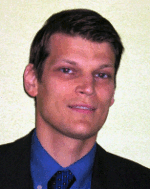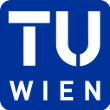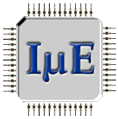 |
|
Biography
Prof. Tibor Grasser is an IEEE Fellow and currently head of the Institute for Microelectronics at Technische Universität Wien. He has edited various books, e.g. on the bias temperature instability (Springer) and hot carrier degradation (Springer), is a distinguished lecturer of the IEEE EDS, has been involved in outstanding conferences such as IEDM, IRPS, SISPAD, ESSDERC, and IIRW, is a recipient of the Best and Outstanding Paper Awards at IRPS (2008, 2010, 2012, and 2014), IPFA (2013 and 2014), ESREF (2008) and the IEEE EDS Paul Rappaport Award (2011). He currently also serves as an Associate Editor for Microelectronics Reliability (Elsevier).
Preface
Welcome to the Institute for Microelectronics’ 29th annual research review! Our permanent staff members, financed by the Austrian Federal Ministry of Science, Research and Economy, have remained unchanged from last year and consist of eight full-time and four part-time employees: Five professors, one full-time and three part-time scientists, a secretary, and one part-time and one full-time technical assistant. In addition, a federally funded post-doctoral researcher has joined our Institute.
Our three part-time scientists, financed by the federal budget, have been upgraded to full employment with funds from various scientific projects. In addition, twenty-eight scientists are presently funded through projects supported by our industrial partners, the Austrian Science Fund (FWF), the Austrian Research Promotion Agency and the Christian Doppler Gesellschaft (CDG), as well as by projects within the European Commission Framework Programme. Most of our separately funded scientists are also working towards their doctoral degrees. In addition, to cope with the Institute’s ever-increasing bureaucratic workload, a full-time project manager has been hired. Overall, compared to previous reports, the number of additionally funded members of the Institute has remained quite stable.
During the last year, two projects funded by the European Commission’s 7th Framework Programme for Research and Technological Development, namely Athenis_3D (“Automotive Tested High Voltage and Embedded Non-Volatile Integrated System on Chip platform employing 3D Integration”) and MoRV (“Modelling Reliability and Variability”), as well as a project on “Reliability Issues in Microelectronics” funded by CDG, have been successfully completed.
The Information Society Technologies project SUPERAID7 (“Stability Under Process Variability for Advanced Interconnects and Devices Beyond 7nm node”) and the CDG project on “High performance Technology CAD”, as well as four projects funded by the FWF, are proceeding according to plan. It is also our great pleasure to report that work on our European Research Council proof-of-concept project, NOVOFLOP ("Non-Volatile Magnetic Flip Flop"), has been continued.
We are very pleased that our industrial partners have continued and extended their support on projects related to noise in semiconductor devices, quantum mechanical simulation of a tandem solar cell and mechanical properties of SOI layers, as well as reliability analysis of driver boards. It is a great pleasure for us to report that three FWF projects, namely “Non-Volatile Magnetic Flip Flop”, “Wigner State Control for Entangled Electronics” and “3D Solution of the Boltzmann Equation on Supercomputers”, have also been started.
We are exceptionally proud of the high academic and scientific output that our Institute is producing. This is reflected in our respectable number of long-term projects and in our high number of publications, especially when it comes to contributing to and participating in international conferences. We are aware however that this success is based considerably on our cooperating partners within academia and industry. We would therefore like to explicitly express our gratitude for their trust in our scientific work. In this sense, we are entering the next year of our Institute, as ever, with high expectations.



